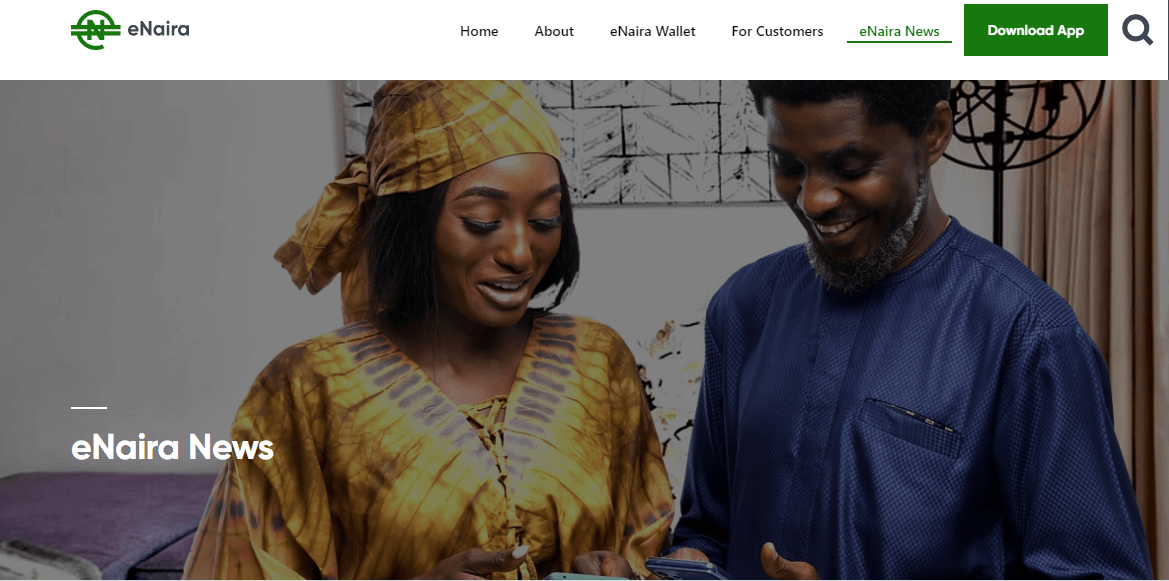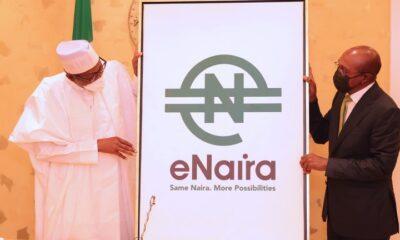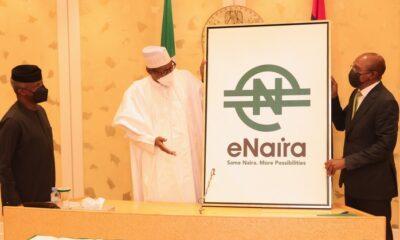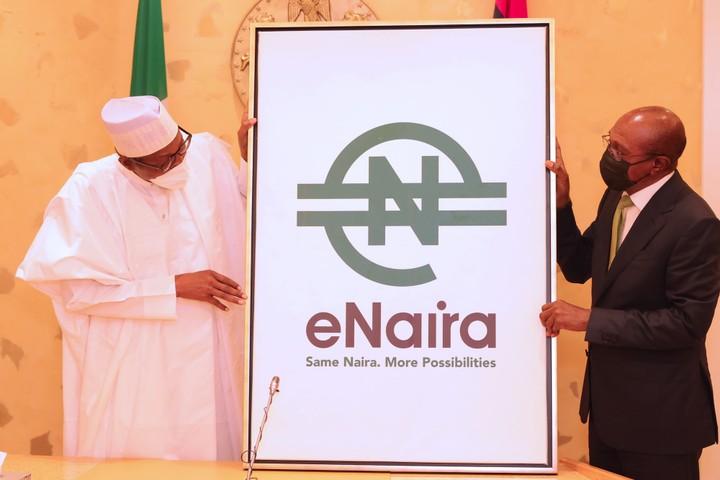The Central Bank of Nigeria’s (CBN) eNaira website has gone live a week before the planned launch of the digital currency.
The website promises easier financial transactions for users of eNaira, offers opportunity for peer-to-peer payments which allows users to send money to one another through a linked bank account or card; allows customers to move money from their bank account to their eNaira wallet with ease; can monitor their eNaira wallet, check balances and view transaction history; and make in-store payment using their eNaira wallet by scanning QR codes.
In addition, customers are allowed to scan the QR Code on the website to get started.
CBN Governor, Mr. Godwin Emefiele, while speaking to a gathering of foreign investors in New York, recently, had told his audience that because of activities surrounding the country’s Independence celebration on October 1, the earlier planned launch of the eNaira on same date would likely be rescheduled to October 4, 2021.
“The central bank would not want the event to take the shine away from the Independence celebration,” he said.
“We are going to be the first country in Africa to launch a digital currency. It is a novel idea because we think it will facilitate trade, Nigeria being the biggest economy in Africa, this will set the tone to tell Africa that we are ready to lead and we would indeed lead in trade and we would make sure that happens.
“Between all central bankers in ECOWAS, we are already working on certain collaboration to make trade, payment and banking system integrate in such a way to set example on the African Continental Free Trade Area (AfCFTA),” he added.
In line with global trend, the CBN recently took a major step towards the launch of its digital currency with its formal announcement of its engagement of global fintech company, Bitt Inc. as its technical partner for the project. To choose the technical partner, the CBN went through a rigorous vendor selection process in line with the Public Procurement Act, conducted by seven departmental directors and a Deputy Governor whereby several companies were evaluated. The evaluation was based on the following criteria: technology ownership and control; implementation timeline; efficiency, ease of adoption; support for anti-money laundering and combating the financing of terrorism (AML/CFT); platform security; interoperability; implementation experience.
Emefiele expressed optimism that the eNaira, would bring about increased cross-border trade, accelerate financial inclusion and lead to cheaper and faster remittance inflow. He said the digital money would lead to easier targeted social interventions, as well as improvement in monetary policy effectiveness, payment systems efficiency, and tax collection.
According to him, after its unveiling, Nigerians should be able to download the eNaira app from either Google plays store or Apple app store, on board themselves and fund their eNaira wallet using their bank account or with cash at a registered agent location.
“If you are a bank customer and you have say N10 million in your bank account, for your comfort of spending and making purchase, you can tell the bank to load N2 million out of your N10 million into your wallet.
“So, your bank balance in physical cash drops to N8 million, while your e-wallet carries N2 million. With that you can make purchases both within and across the country.
“There are so many variance of the eNaira. But this is where we would start because we are not going to pretend that there are not risks in opening your system up. We would look at the various products, determine the risk, determine the best way to mitigate the risk before we now open it up more and more,” Emefiele added.
Also shedding more light on Bitts, he said, “we chose them as a partner. In some other climes where they are, they have their software and they earn their money. But we chose that they would establish their company in Nigeria. “The CBN will own substantially stake in that company. It is a company that will be established in Nigeria and majority holding will be the CBN,” he added.
On his part, the CBN’s Director, Corporate Communications Department, Mr. Osita Nwanisobi, explained that the eNaira project had been a long and thorough process for the apex bank following its resolve in 2017, to digitise the local currency after extensive research and exploration.
Meanwhile, China’s central bank last weekend announced that all transactions of crypto-currencies are illegal, effectively banning digital tokens such as Bitcoin.
“Virtual currency-related business activities are illegal financial activities,” the BBC quoted People’s Bank of China to have said, warning it “seriously endangers the safety of people’s assets”. China is one of the world’s largest crypto-currency markets. Fluctuations there often impact the global price of crypto-currencies.
The price of Bitcoin fell by more than $2,000 (£1,460) in the wake of the Chinese announcement.
It was the latest in China’s national crackdown on what it sees as a volatile, speculative investment at best – and a way to launder money at worst. Trading crypto-currency had officially been banned in China since 2019, but had continued online through foreign exchanges. However, there has been a significant crackdown this year.
In May, Chinese state intuitions warned buyers they would have no protection for continuing to trade Bitcoin and other currencies online, as government officials vowed to increase pressure on the industry.
In June, it told banks and payment platforms to stop facilitating transactions and issued bans on “mining” the currencies – the trade of using powerful computers to make new coins.



 Forex4 weeks ago
Forex4 weeks ago


 Naira4 weeks ago
Naira4 weeks ago
 Billionaire Watch3 weeks ago
Billionaire Watch3 weeks ago






 Naira4 weeks ago
Naira4 weeks ago






 Naira3 weeks ago
Naira3 weeks ago


 Naira2 weeks ago
Naira2 weeks ago






 Naira2 weeks ago
Naira2 weeks ago


 Naira3 weeks ago
Naira3 weeks ago










